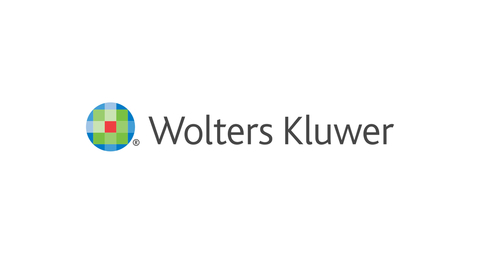Wolters Kluwer Survey: Nursing Schools to More Than Double GenAI Use in 2-3 Years
Wolters Kluwer Survey: Nursing Schools to More Than Double GenAI Use in 2-3 Years
Conducted in collaboration with the National League for Nursing, the data identifies key trends in technology use, adoption and opportunities for nursing education
WALTHAM, Mass.--(BUSINESS WIRE)--College and university nursing programs continue to analyze new technologies to prepare students for a career in patient care. To see how these trends continue to evolve, Wolters Kluwer Health, along with the National League for Nursing (NLN), conducted a survey of over 300 nursing school faculty and deans. The Future of Technology in Nursing Education survey has taken place every four years since 2016 as a pulse check on the industry.
GenAI will power the nursing classroom of the future
One of the biggest topics survey respondents were asked about was the role of generative artificial intelligence, or GenAI, at their institutions. Findings on this breakthrough technology showed:
- Currently, only 17% of respondents are using GenAI in their programs
- That number jumps, however, to 45% of schools planning to invest in Gen AI in the next 2-3 years and 49% of schools in the next 4-5 years
- 60% of large schools (more than 150 students) are in the strategic planning phase, with plans to invest in GenAI over the next 4-5 years compared to 46% of small schools (under 150 students)
“Looking at the current trends in technology use across nursing schools yielded compelling findings, but it is no surprise that GenAI is one of the key technologies being tested to support both students and faculty. Much like the care settings these students will soon be joining, academia is finding the most appropriate places to start integrating AI for time and resource savings,” said Julie Stegman, Vice President, Wolters Kluwer Health Learning & Practice. “What rings true across the board is the pressing need for more practice ready and clinically competent nurses—the workforce continues to face a shortage of nurses, but technology is helping students and faculty bridge that gap with more life-like experiences.”
Virtual reality emerges as more clinical preparedness is needed
At the time of the last survey in 2020, the use of virtual simulation was thrust into overdrive to help students learn in tandem with online classes, peaking at 91%. With a more balanced mix of classroom settings, virtual simulation has continued to be an important tool but has balanced out its usage at 74% of institutions surveyed.
Building on this, nursing programs across the US are looking to enhance the types of simulations they are providing to students by shifting to virtual reality (VR) based solutions. In fact,
- Current usage of VR has nearly doubled from 15% in 2020 to 29% in 2024
- 53% of respondents say they are planning to use VR in the next 2-3 years
- 60% of schools are planning to increase their current investment in VR
Classroom mimics real-life care settings
Analyzing the survey data and comparing it to the trends currently impacting the nursing industry shows that workforce demand is driving collegiate programs to adopt technology that new nurses will interact with while on the job. Nearly 30% of respondents said that the number one reason their schools are investing in new technology was for students to use the same solutions that they will have to use in practice. An equal number rated increasing clinical judgment of students as the top reason. Additionally, electronic health records (EHRs) are ubiquitous in the hospital setting and schools have followed suit, as two-thirds (67%) of nursing programs train students using a mock EHR.
“Surveying deans and faculty since 2016 allows us to see the changes and enhancements that have been made by integrating technology with curriculum to make a true impact for both faculty and nursing students,” said Beverly Malone, PhD, RN, FAAN, President and CEO, National League for Nursing. “With this data, we are able to find areas where clinical practice and education may vary – giving an opportunity to more closely align these functions and maximize the ease of the education-to-practice transition.”
Forecast for the Future is a four-part survey series that presents the findings from the 2025 Wolters Kluwer / NLN survey of nursing schools. Download the first in the series, highlighting these and additional technology trends impacting the current state of nursing education, here.
Wolters Kluwer and the National League for Nursing have jointly conducted the Future of Technology in Nursing Education survey every four years since 2016. The 2024 survey received 307 responses from nursing program deans (53%) and faculty (36%). The survey, which was conducted from July to October 2024, was emailed to deans and administrators by NLN and Wolters Kluwer.
About Wolters Kluwer
Wolters Kluwer (EURONEXT: WKL) is a global leader in information, software solutions and services for professionals in healthcare; tax and accounting; financial and corporate compliance; legal and regulatory; corporate performance and ESG. We help our customers make critical decisions every day by providing expert solutions that combine deep domain knowledge with technology and services.
Wolters Kluwer reported 2024 annual revenues of €5.9 billion. The group serves customers in over 180 countries, maintains operations in over 40 countries, and employs approximately 21,600 people worldwide. The company is headquartered in Alphen aan den Rijn, the Netherlands.
For more information, visit www.wolterskluwer.com, follow us on LinkedIn, Facebook, YouTube and Instagram.
Contacts
Media Contact
Josh DeStefano
Manager, External Communications
Wolters Kluwer Health
+1 (917) 408-5125
joshua.destefano@wolterskluwer.com
